Abstract
Ascorbic acid metabolism is associated with a number of mechanisms known to be involved in host resistance to malignant disease. Cancer patients are significantly depleted of ascorbic acid, and in our opinion this demonstrable biochemical characteristic indicates a substantially increased requirement and utilization of this substance to potentiate these various host resistance factors. The results of a clinical trial are presented in which 100 terminal cancer patients were given supplemental ascorbate as part of their routine management. Their progress is compared to that of 1000 similar patients treated identically, but who received no supplemental ascorbate. The mean survival time is more than 4.2 times as great for the ascorbate subjects (more than 210 days) as for the controls (50 days). Analysis of the survival-time curves indicates that deaths occur for about 90% of the ascorbate-treated patients at one-third the rate for the controls and that the other 10% have a much greater survival time, averaging more than 20 times that for the controls. The results clearly indicate that this simple and safe form of medication is of definite value in the treatment of patients with acvanced cancer.
Full text
PDF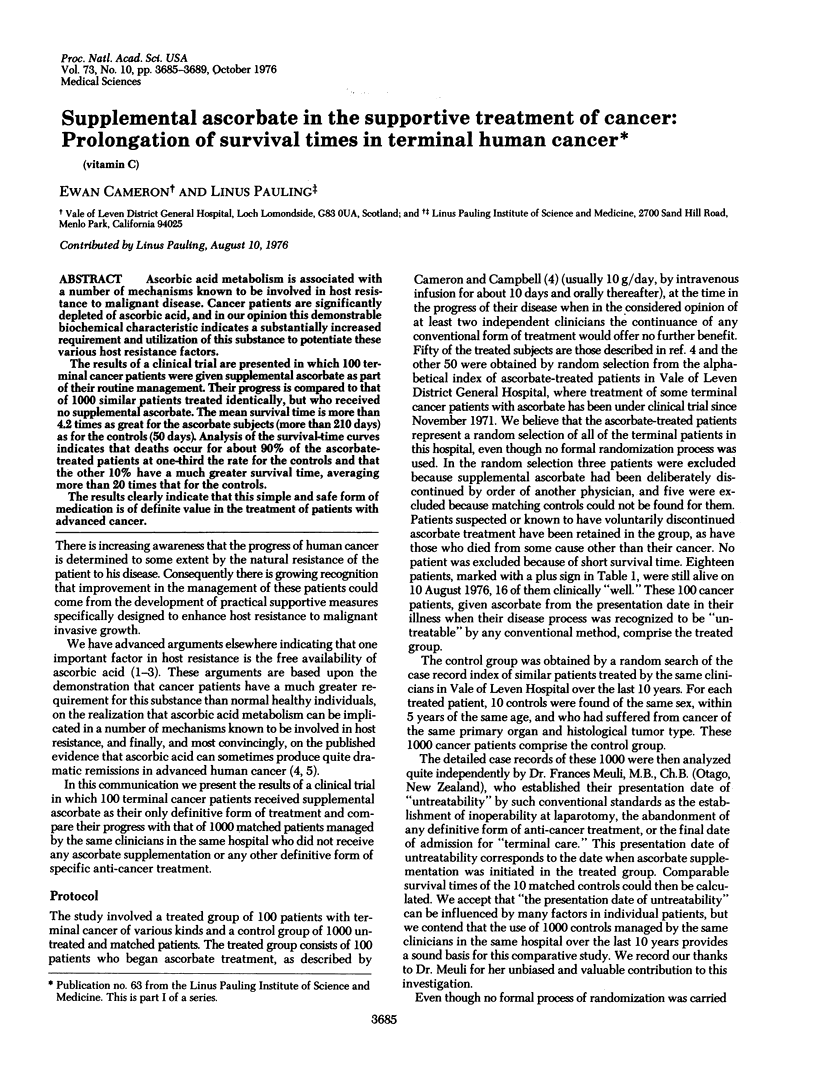
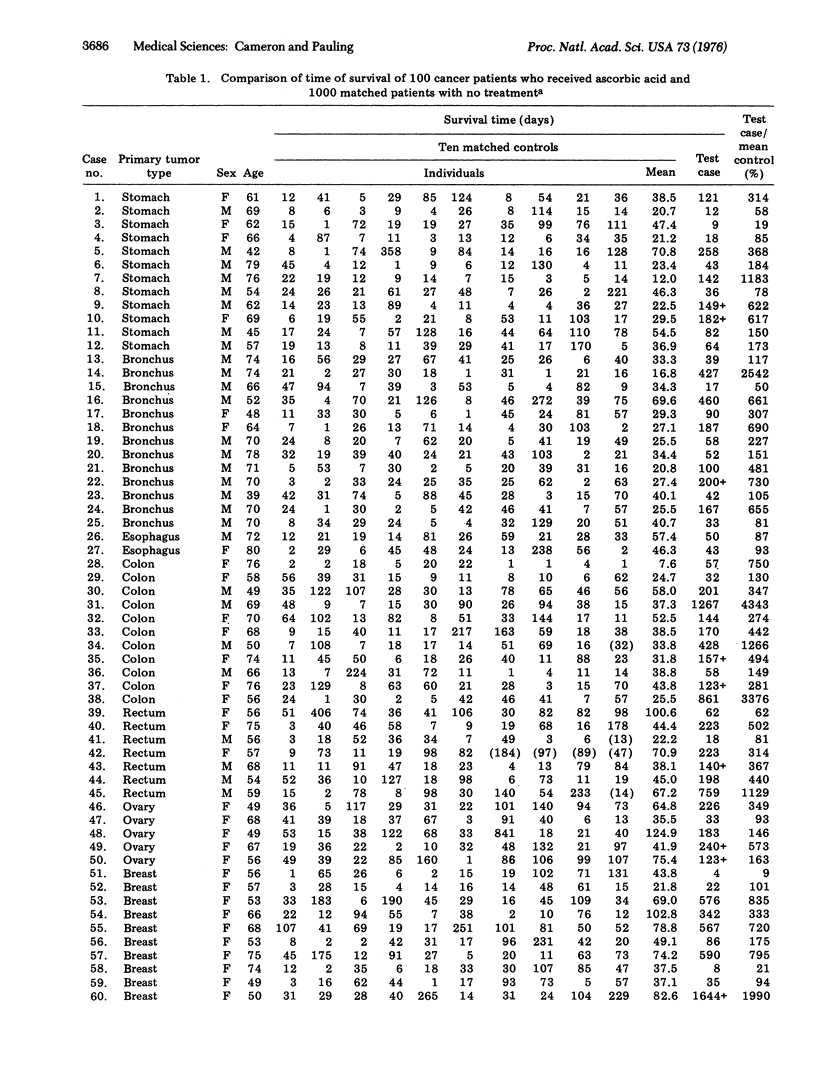
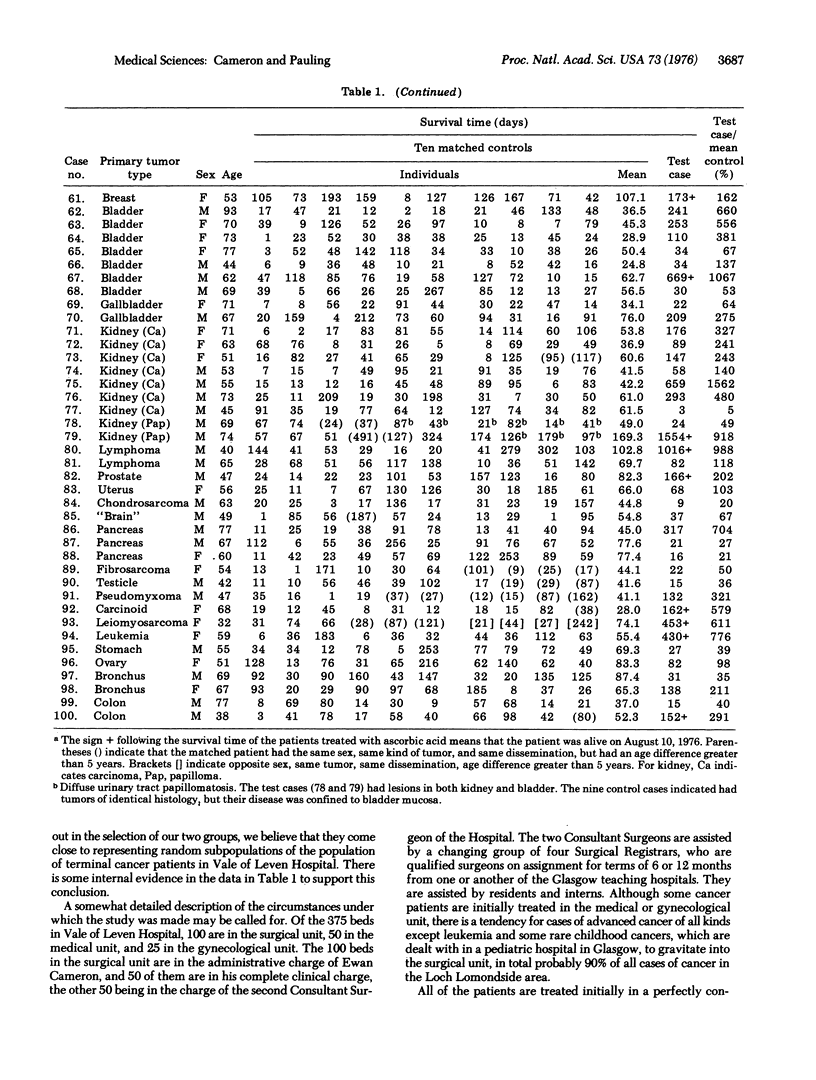
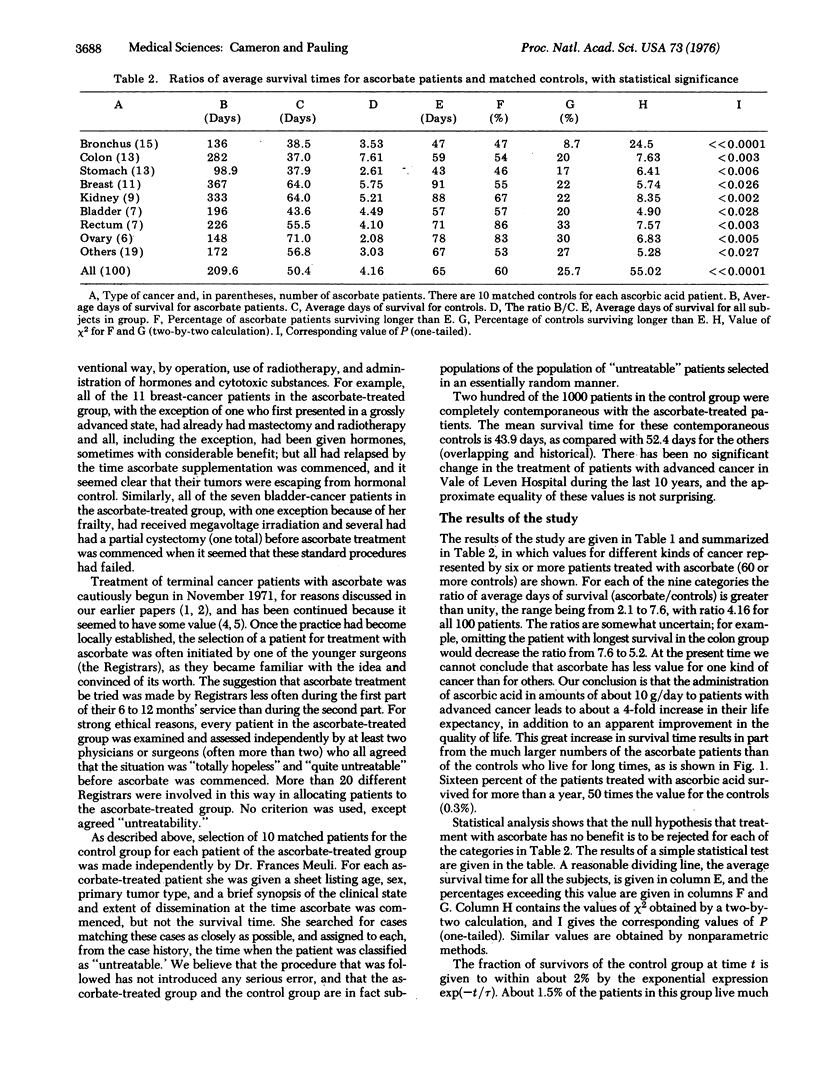
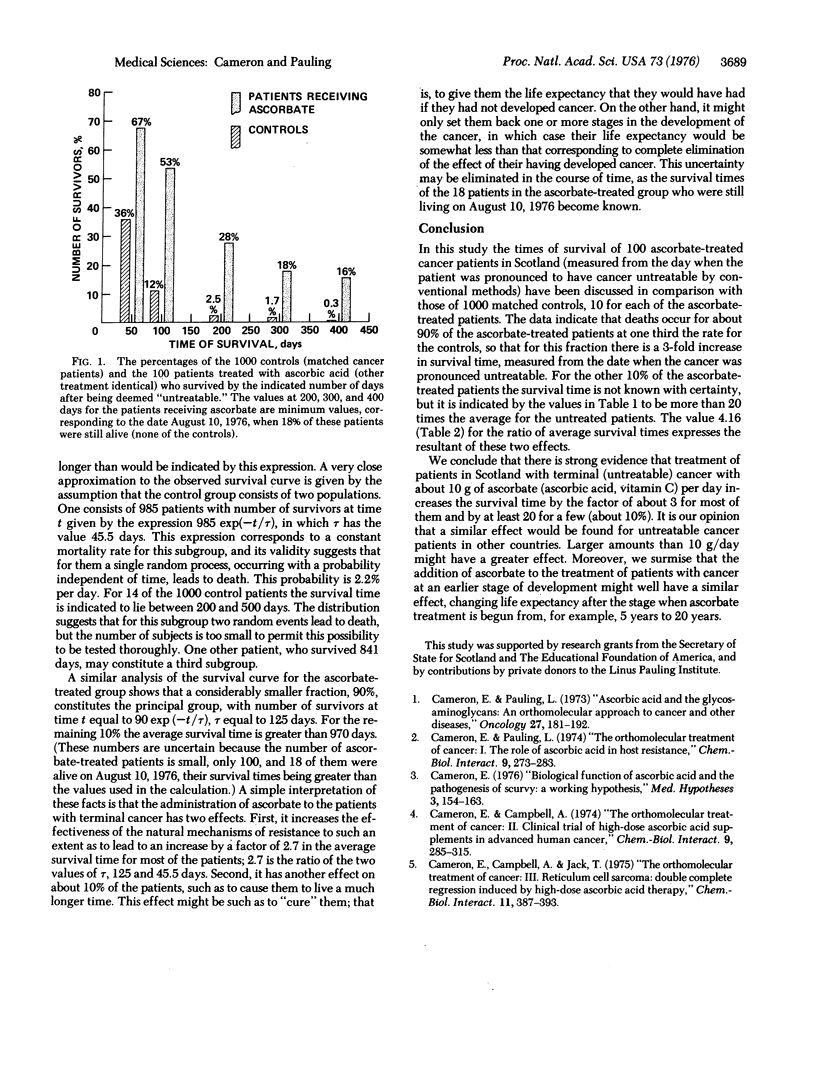
Selected References
These references are in PubMed. This may not be the complete list of references from this article.
- Cameron E. Biological function of ascorbic acid and the pathogenesis of scurvy: a working hypothesis. Med Hypotheses. 1976 Jul-Aug;2(4):154–163. doi: 10.1016/0306-9877(76)90072-4. [DOI] [PubMed] [Google Scholar]
- Cameron E., Campbell A., Jack T. The orthomolecular treatment of cancer. III. Reticulum cell sarcoma: double complete regression induced by high-dose ascorbic acid therapy. Chem Biol Interact. 1975 Nov;11(5):387–393. doi: 10.1016/0009-2797(75)90007-1. [DOI] [PubMed] [Google Scholar]
- Cameron E., Campbell A. The orthomolecular treatment of cancer. II. Clinical trial of high-dose ascorbic acid supplements in advanced human cancer. Chem Biol Interact. 1974 Oct;9(4):285–315. doi: 10.1016/0009-2797(74)90019-2. [DOI] [PubMed] [Google Scholar]
- Cameron E., Pauling L. Ascorbic acid and the glycosaminoglycans. An orthomolecular approach to cancer and other diseases. Oncology. 1973;27(2):181–192. doi: 10.1159/000224733. [DOI] [PubMed] [Google Scholar]
- Cameron E., Pauling L. The orthomolecular treatment of cancer. I. The role of ascorbic acid in host resistance. Chem Biol Interact. 1974 Oct;9(4):273–283. doi: 10.1016/0009-2797(74)90018-0. [DOI] [PubMed] [Google Scholar]


